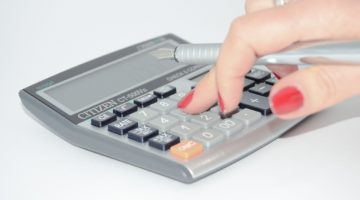The Iowa Court of Appeals has laid out some important rules for anyone trying to collect on a credit card debt. The ruling came after Capital One sued two Iowans in small claims court. The cases had been dismissed because Capital One failed to provide documentation showing transactions on the credit cards starting with a zero balance. On appeal, the Iowa Court of Appeals said it wasn’t necessary for there to be documentation going back to a zero balance butRead more
Bankruptcy & the FDCPA
.There are two very important statutes that serve to protect consumers from some of the consequences of too much debt. The first is the United States Bankruptcy Code. The other statute is the Fair Debt Collections Practices Act or FDCPA. Both statutes individually can help consumers. When you combine the two that is when some really good things can happen. United States Bankruptcy Code First, the Bankruptcy Code allows for the discharge of certain types of debt. If you findRead more
How Do You Know If You Should File Bankruptcy?
Many clients wonder whether they are the only ones facing the kind of financial hardships that lead people to file bankruptcy. That’s obviously not the case since millions of people file bankruptcy every year. But it’s good to know what causes most people to have to file bankruptcy. Should You File? A study a few years ago by researchers at Harvard Law School looked at the causes of bankruptcy and found that more than two-thirds of debtors in bankruptcy hadRead more
What’s your partner not telling you about finances?
Are you keeping your finances a secret? Are you keeping it from your spouse, your children….maybe even from yourself. Of course everyone wants to hear if you’re doing well in life. We readily “brag” on a booming business, a new promotion, the birth of a child. What we don’t disclose to one another is our debt (even though nearly everyone’s got it), and this can ruin relationships. We see it everyday. A couple comes to us as their financial “last straw”.Read more
Enforcing the Bankruptcy Automatic Stay
One of the most important aspects of bankruptcy law is the “automatic stay” that’s created the moment a case is filed. Automatic Stay This “stay” means that all efforts by a creditor to collect a debt or to enforce rights against a debtor’s property have to stop immediately. So these must end foreclosures garnishments tax offsets license revocations arbitration evictions any other proceeding to collect Sometimes a secured creditor is able to later get “relief” from the stay but unsecuredRead more
What Property Is Included In Bankruptcy?
It’s common for a bankruptcy client to wonder what property is part of the bankruptcy and whether they’re in danger of losing it. The simple answer is that ALL property owned at the time of filing is included in the bankruptcy but rarely does a debtor in Iowa ever lose any of it. Bankruptcy Filing When someone files bankruptcy, an “estate” is created that includes all of a debtor’s legal and equitable interest in any property held on the dateRead more
Creditors Send 1099s When Debt Forgiven
Many of our clients are receiving Form 1099s from creditors reporting income to the Internal Revenue Service. This “income” is actually debt the creditor forgave or wrote off. To the IRS, this forgiveness of debt is considered taxable income just as if you had earned wages from employment. Receiving the 1099 can be potentially harmful if you do nothing to respond, but there are some exceptions that can help you avoid the tax liability. The First Exception The first exceptionRead more
Chapter 13 bankruptcy
Chapter 13 bankruptcy is my favorite type of bankruptcy because of what a debtor can do to deal with debt. What is a Chapter 13? It helps a person reorganize debts and may be one of the best ways to save a home. Over a 3-5 year period, debtors make payments to a trustee, who disburses the funds to creditors. Unpaid debts remaining at the end of the 3-5 year period are discharged. Secure creditors will receive money by theRead more
Discharging Income Taxes
Many people think taxes can’t be discharged in bankruptcy but that is not the case. Some taxes can be discharged but it’s important to know how old the taxes are and what kind they are to determine whether bankruptcy can be used to eliminate tax debt. Here is a shorthand way to determine whether taxes can be discharged There are four questions to ask and the correct answer is in parentheses following the question. 1. Are these income taxes? (Yes.)Read more
You’re Not Alone When It Comes To Bankruptcy
Our bankruptcy clients often comment to us, “I never thought this would happen to me.” Well, just who does bankruptcy happen to? The stigma of bankruptcy has caused many false concerns and unnecessary speculation. As we all know, life can take unexpected turns. Job loss, divorce, sickness, and failed business ventures occur at the most inopportune times and can send our finances into a tailspin. It’s important (now more than ever) to realize that bankruptcy isn’t exclusive to the poorestRead more
- « Previous Page
- 1
- …
- 6
- 7
- 8
- 9
- 10
- …
- 14
- Next Page »












